Ethiopia: Emergency Response & Recovery
In the past decade, the need for global humanitarian assistance and, likewise, the number of people in need has been growing exponentially; this growth is due mainly to the increasing numbers of armed conflicts and protracted crises, severe natural disasters, and the global pandemic alongside the pressures of urbanisation. Furthermore, the high numbers of displaced people, a growing funding gap, difficulties with access to affected populations, and severe protection issues require more investment in global collective humanitarian efforts.
In this context, we aim, alongside our partners, to provide principled, relevant, timely, and high-quality humanitarian assistance to save lives, alleviate suffering, and maintain the dignity of affected populations. Our humanitarian assistance is followed by recovery assistance and resilience building. Our humanitarian aid is based on the core principles of humanity, impartiality, neutrality, and independence.
We continue to help people caught in conflicts, forced displacement, and complex crises in Ethiopia. At the same time, we repeatedly helped victims of droughts.
Our main areas of focus:
- Multipurpose cash assistance, including cash as a crosscutting modality
- Nutrition-sensitive food security
- Shelter and non-food items, including infrastructure rehabilitation
- Water, sanitation and hygiene
- Education in emergencies integrating Psychosocial Support and Child Protection
- Protection mainstreaming
Past aid programmes

Multisectoral life-saving response to the acute needs of the most vulnerable IDPs, returnees and host communities in Borena zone, Oromiya, and in Konso, SNNP, Ethiopia
Communities in southern and eastern parts of Ethiopia are suffering not only from political unrest, but also from extreme weather conditions of devastating prolonged droughts. The latest rainy season was the driest on record in the last 70 years, what has worsen humanitarian needs and hindered access mainly to displaced people in need of assistance. Overcrowded displaced camps contribute to poor hygiene and disease outbreaks. Water scarcity is critical, with many relying on unsafe sources or traveling long distances. Food security is compromised due to decreased agricultural production, livestock deaths, and high prices. Market functioning is occasionally hindered by conflicts and floods. Additionaly, the security situation in areas of ethnic and political conflict remains unstable, preventing the displaced families from returning home.
PIN, following on the last BHA funded intervention, seeks to reduce the impact and improve the overall conditions of these communities. As part of the project activities, PIN is distributing emergency hygiene and shelter kits containing mattresses, blankets, and cooking equipment for food preparation and personal hygiene. For the most vulnerable crisis-affected households we are providing multipurpose cash assistance to cover their basic needs. Furthermore, the project focuses on constructing or rehabilitating wells and water supply systems. We also work closely with local health workers and volunteers, training them to raise awareness about good hygiene practices and the prevention of infectious diseases within the communities. Overall aim is to support 138 000 individuals, of whom is 96 900 internally displaced pople.
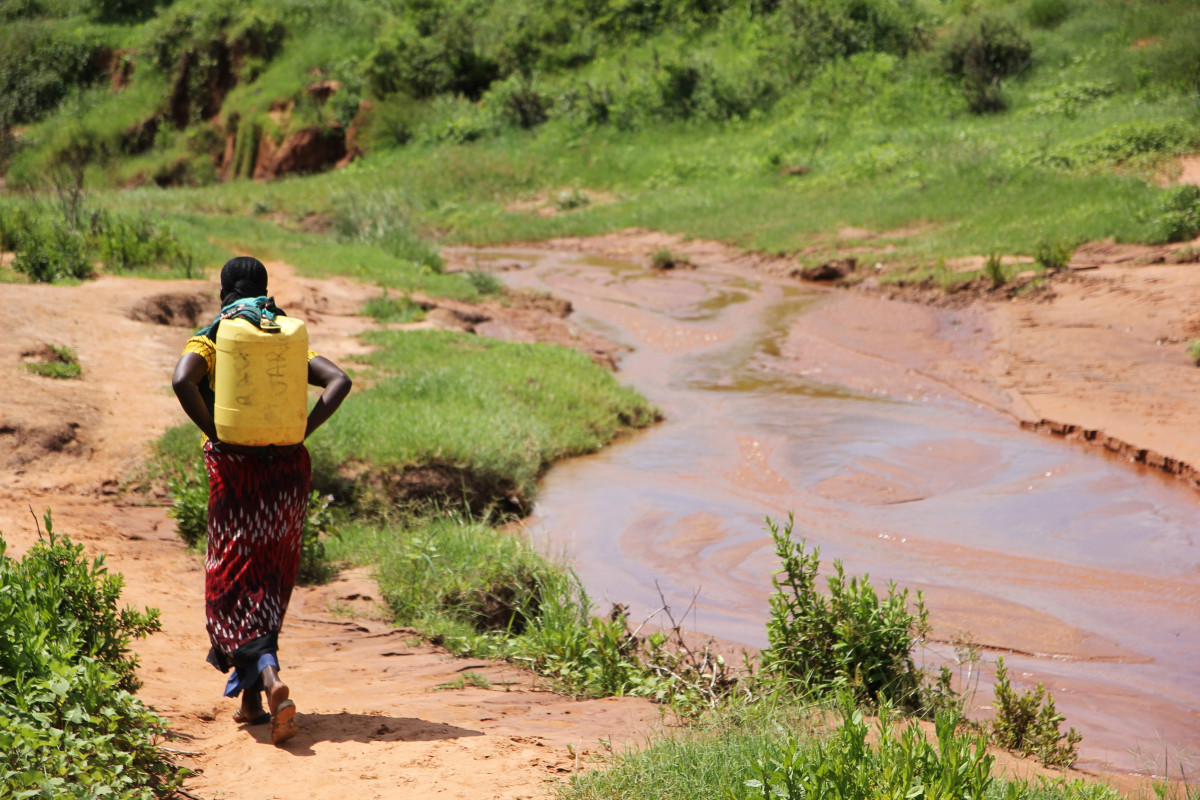
WASH emergency response to the acute needs of the most vulnerable IDPs, returnees, and host communities in the SNNP and Tigray Regions, Ethiopia
Over the last few years, Ethiopia has been affected by various shocks, including conflict, climate disasters – floods, erratic rainfalls and droughts – and disease outbreaks, leaving indelible marks on local communities. Insufficient rainfall over the past four seasons resulted in the loss of livestock and poor agricultural harvests, forcing people to sell their main livelihood assets to survive. The most drought-affected people cannot fulfil their basic daily needs, including food or medicine.
Thanks to funds from ECHO and CzDA, we are enhancing water access and promoting hygiene, striving to improve the well-being and resilience of targeted communities in South Omo, Konso (Southern Region), and the South Eastern zone in the Tigray region. Our interventions save lives and provide essential support to the most vulnerable communities. We support communities affected by natural and man-made disasters via water access rehabilitation and hygiene promotion campaigns. This project will improve access to safe drinking water by rapidly rehabilitating deep boreholes, shallow wells, and cattle troughs. In addition, we will distribute WASH NFI kits (consisting of soap for personal hygiene and laundry, as well as other essential items for personal hygiene). We also focus on public health and hygiene promotion in collaboration with local health workers. PIN engages with government stakeholders to build capacity and ensure long-term impact. More than 40,000 people are benefiting from this project.
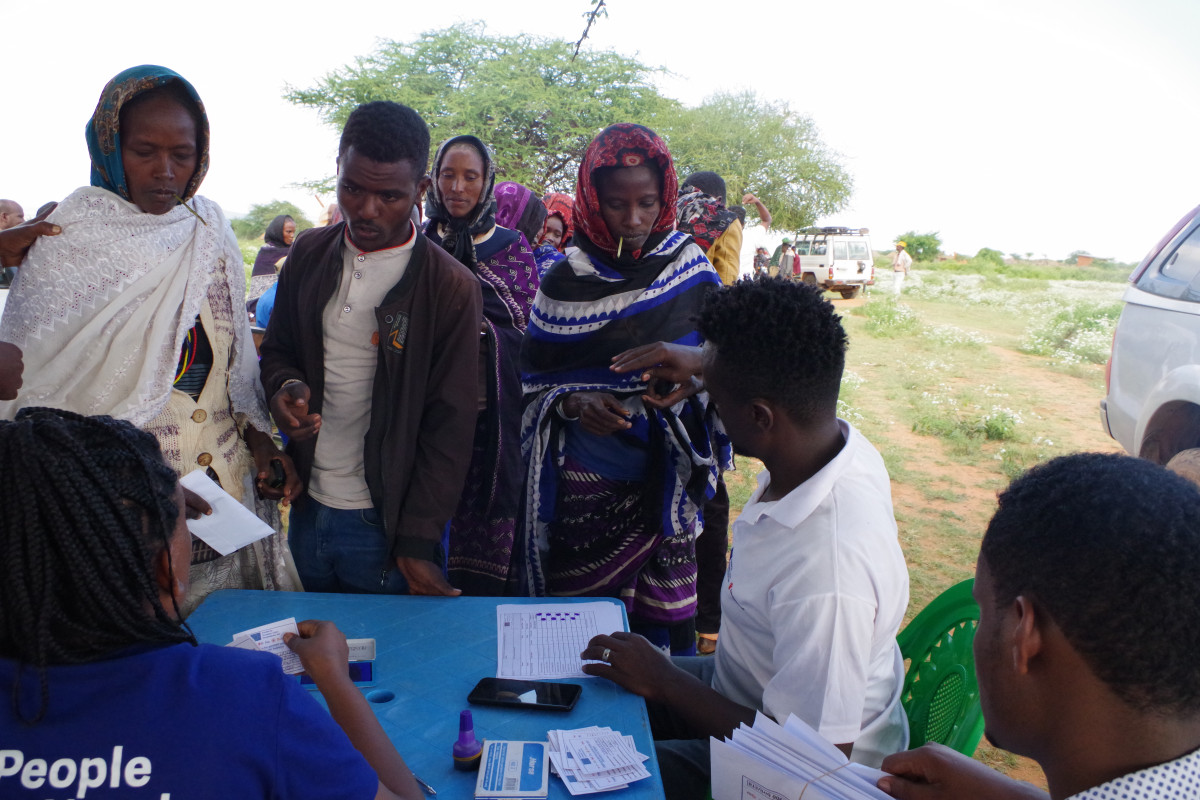
To meet immediate basic needs through multi-purpose cash assistance in Ethiopia
Ethiopia faces overlapping crises, including conflict, climatic shocks (drought and floods), disease outbreaks (cholera and measles), and macroeconomic issues. The conflict in northern Ethiopia and severe droughts in other regions have left 31.4 million people in need, and around 4.5 million people are internally displaced (UNICEF, 2023). Economic activities are slowly recovering, but emergency aid must continue.
This project aims to contribute to the humanitarian response in Konso Zone, South Omo (Southern Region) and Oromia region. The idea is to support the critical basic needs of the most vulnerable households with multi-purpose cash assistance, empowering families to meet their needs as they decide how to use the assistance. Thanks to this project, we support 87,328 beneficiaries. We prioritised families with two or more children under 5, child-headed families, individuals with disabilities, bedridden individuals, and those over 65. Additionally, we also considered people who have been displaced and living away from home for at least six months.

Drought response to the acute WASH needs of the most vulnerable in southern Ethiopia
Ethiopia is grappling with its most severe drought in four decades, particularly affecting communities in the southern regions. Climate change has exacerbated water scarcity, posing significant challenges to public health, development, and food security. Repetitive flooding has contaminated water supplies, leaving vulnerable households—especially pastoralists—struggling with sanitation and hygiene. PIN focuses on South Omo, one of the hardest-hit areas in the Southern Region.
This project supports around 13,500 vulnerable people with safe water access and hygiene practices while improving sanitation for approximately 2,500 individuals in southern Ethiopia by addressing their most urgent needs. The main activities of this initiative consist of the rehabilitation of shallow wells (and water supply facilities for livestock), selection and training for the health development army, public hygiene promotion campaign, and the distribution of WASH and dignity kits for women and girls.
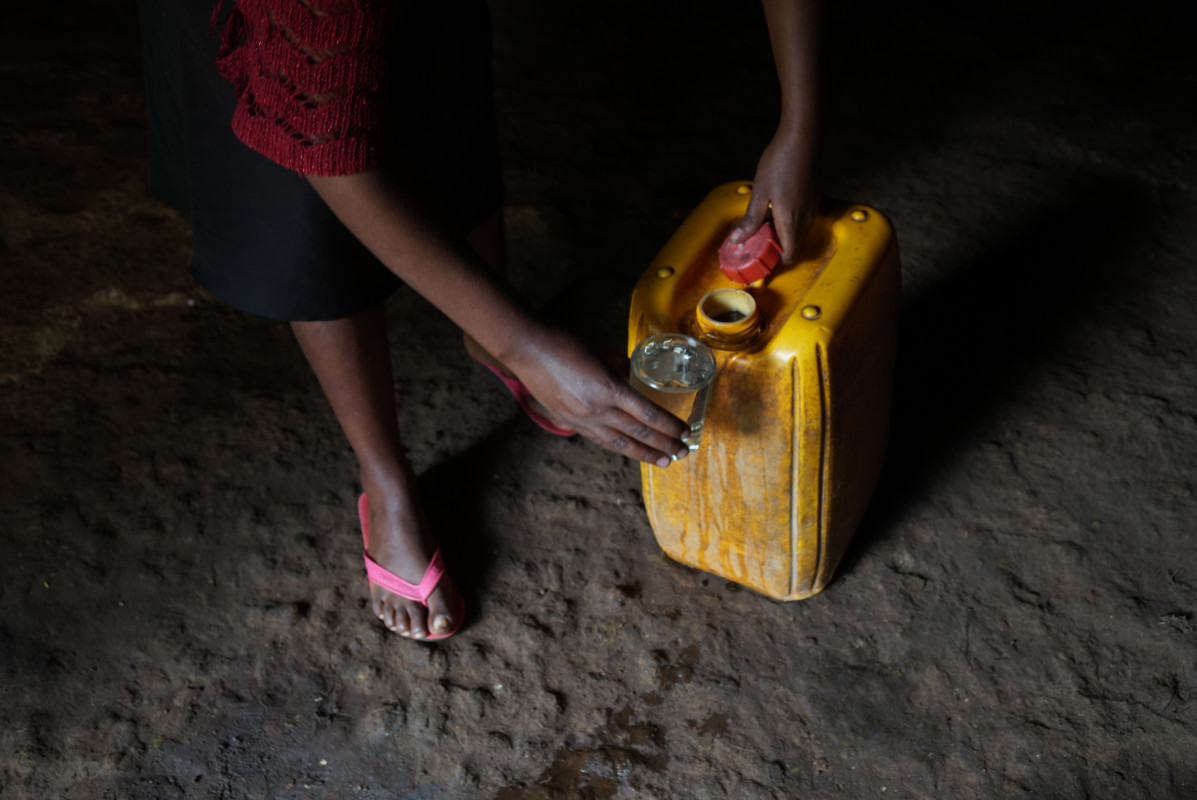
Education in Emergency and Institutional WASH Services Support to Conflict-Affected Populations in Tigray
Ethiopia faces complex challenges, including internal conflict, instability, poverty, forced migration, hunger, and malnutrition. These issues, coupled with the consequences of climate change, have far-reaching impacts. Among the most affected are the hundreds of thousands of children whose educational opportunities are in danger.
Thanks to the Internal Funds, alongside our local non-profit partner organisation HOP, we aim to address the urgent Water, Sanitation, Hygiene, and educational needs of children impacted by conflict in the central zone of the Tigray region. The main components of this intervention include providing teaching and learning materials to enhance the quality of education, renovating school buildings damaged during fighting, and providing safe and sufficient learning environments. We also repair and improve gender–segregated hygiene facilities to ensure student well-being. The project integrates gender, disability, child safeguarding, and conflict sensitivity to contribute to a more equitable and peaceful society. More than 6,000 individuals, including children and teachers, will benefit from these activities.

Immediate assistance to the internally displaced population in Konso, South Omo and other areas of the SNNP, Oromia and Sidama regions
Political instability and ethnic armed conflicts in neighboring regions have displaced hundreds of thousands of people in the SNNP region during the past few years. People fleeing violence often have to travel hundreds of kilometers, by leaving they possessions and agricultural land behind, they lose their only source of livelihood. Refugees in host communities often make up the same proportion as the host population which puts more pressure on farmland. Due to the growing population, access to clean water is not sufficient, most people have to walk several kilometers to have water from untreated water resources, such as lakes and rivers. Thus, diseases related to poor hygiene are spreading across the area. These limited resources are threaten even more during droughts. Refugees come without any means, they live without shelter in places that do not provide them with basic protection or minimal hygienic and sanitation conditions.
People in Need helps to improve the living conditions of some 200,000 internally displaced people through access to drinking water and the provision of shelter. Thanks
to the project, wells, latrines and hand washing facilities will be (re)constructed, a water storage system will be introduced and health staff will be trained for its management and maintenance. Households will be provided with hygiene kits, shelter kits (rope, tarpaulin) including bedding and kitchet set. An awareness campaign will be organized, health volunteers will be in regular contact with households, bringing key health and hygiene information to a wide range of people.

Emergency Basic Needs Support to Conflict Affected Populations in Tigray and Amhara
Since November 2020, civil war has been ongoing in the Tigray region in the north of Ethiopia. Troops loyal to the regional government are fighting the federal army, with other armed actors involved on both sides of the conflict. The conflict has affected not only the Tigray region, but also the neighbouring regions of Amhara and Afar. According to current estimates (2022), 6.7 million people are in need of humanitarian assistance, of which 1.7 million are at risk of catastrophic famine. Since the beginning of the conflict, population displacement has been ongoing, with at least 2.1 million people estimated to have been displaced within the Tigray, Amhara and Afar regions. Many households are facing critical conditions that threaten their livelihoods, their homes are damaged and looted, and they have limited (or no) access to functioning markets and basic services such as education and health care. The security situation in the region is highly erratic and unpredictable. The functioning of markets, banking, transport and telecommunication services is limited and humanitarian assistance is also hampered by the Ethiopian government, which limits the access to the region.
The project will focus on re-establishing access to safe water, including hygiene promotion to prevent disease outbreaks. Project activities will include rehabilitation of water supply systems and provision of necessary sanitation supplies to target households. The project will also aim to improve food security for which cash assistance will be provided to the target households.

Multisectoral life-saving response to the acute needs of the most vulnerable IDPs and returnees in Oromiya and SNNP regions
Ethnic conflicts, political unrest in the country, including armed struggles, and torrential rains alternating with devastating droughts have led to the displacement of hundreds of thousands of people in the Oromia and SNNPR regions over the past few years. In some cases, displaced people travel more than 100 km before finding a new safer place to live. Such displaced households often do not have their most basic needs met, such as access to drinking water, sanitation and hygiene, or safe shelter, and have not been able to grow or harvest crops (whether
due to unrest or natural disasters), leading to starvation. In areas of ethnic and political conflict, the security situation is very unstable and does not allow for the return of displaced families, but in some areas, People in Need also works with households that have already returned to their original homes and have to rebuild their dwellings and livelihoods.
The aim of this project is to help displaced households and returnees meet their most acute needs for access to safe drinking water, sanitation and dignified and safe shelter. The project activities provide emergency shelter kits including mattresses and blankets, emergency cooking kits for food preparation and hygiene items to the targeted households. The project also works with and trains local health workers and volunteers, who then spread awareness in the communities about good hygiene and prevention of infectious disease outbreaks. Finally, the project also focuses on the construction or rehabilitation of wells and water supply schemes. In total, the project will support approximately 216,000 people who are living in complex and protracted crises and do not have the means to meet their most basic needs.
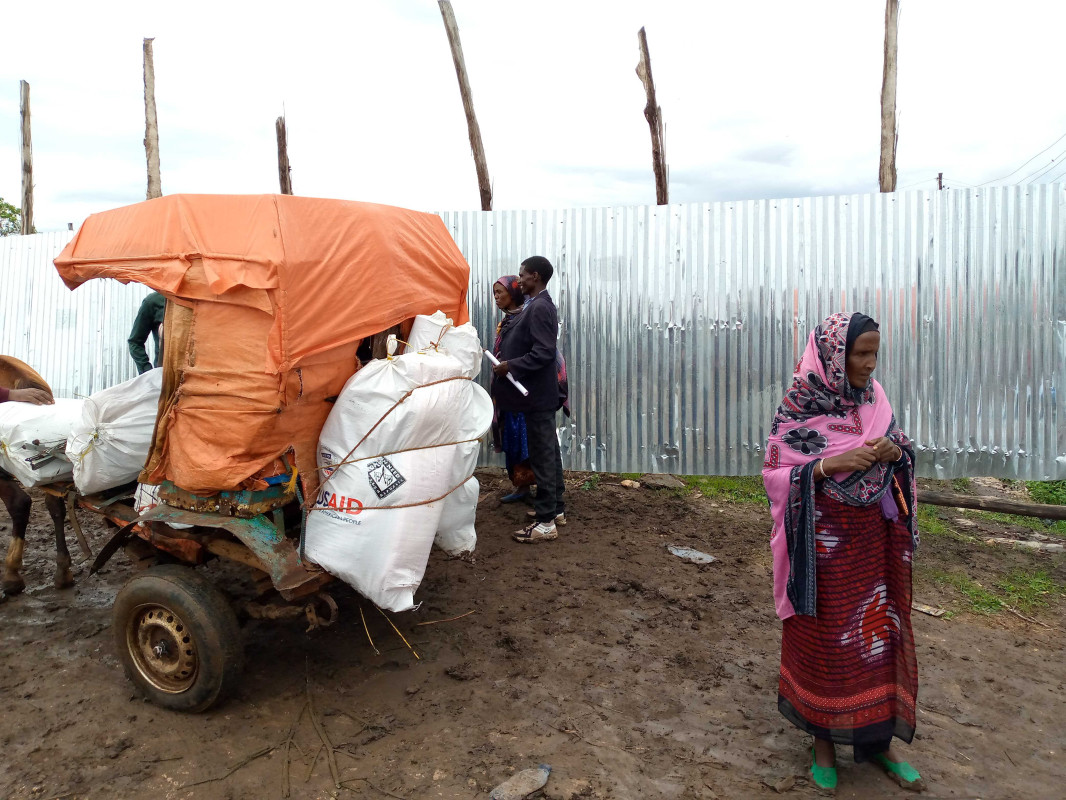
Multisectoral life-saving response to the acute needs of the most vulnerable IDPs and returnees in Guji and West Guji zones, Oromia, Ethiopia
Political instability and ethnic armed conflicts in neighboring areas over the past few years have displaced some 100,000 people seeking safety in the woredas of the Guji Zone. People fleeing violence often have to travel hundreds of kilometers leaving their agricultural land and possessions behind. Refugees in host communities often make up the same proportion as host community, putting more pressure on land. With a growing population, access to drinking water is becoming insufficient. People have to walk several kilometers for water from rivers and ponds which is not
properly cleaned. Thus, diseases related to poor hygiene are spreading in the area. Extensive droughts can threaten even these last sources of water within a few months. Refugees come without any possessions, they live in shelters in places that do not provide them with basic protection or minimal hygienic conditions.
People in Need is improving the living conditions of the internally displaced population by accessing drinking water and providing a safe shelter. Thanks to the project, the wells, latrines, and hand washes will be reconstructed, a water storage system will be introduced and staff will be trained for its administration and maintenance. Households will be equipped with basic hygiene kits and trained in their use while receiving equipment for simple shelters. Health volunteers will be in regular contact with households, so the key health and hygiene information will reach a wide range of community members. The project also includes an information campaign on the prevention, symptoms, and treatment of the Covid-19 viral disease.
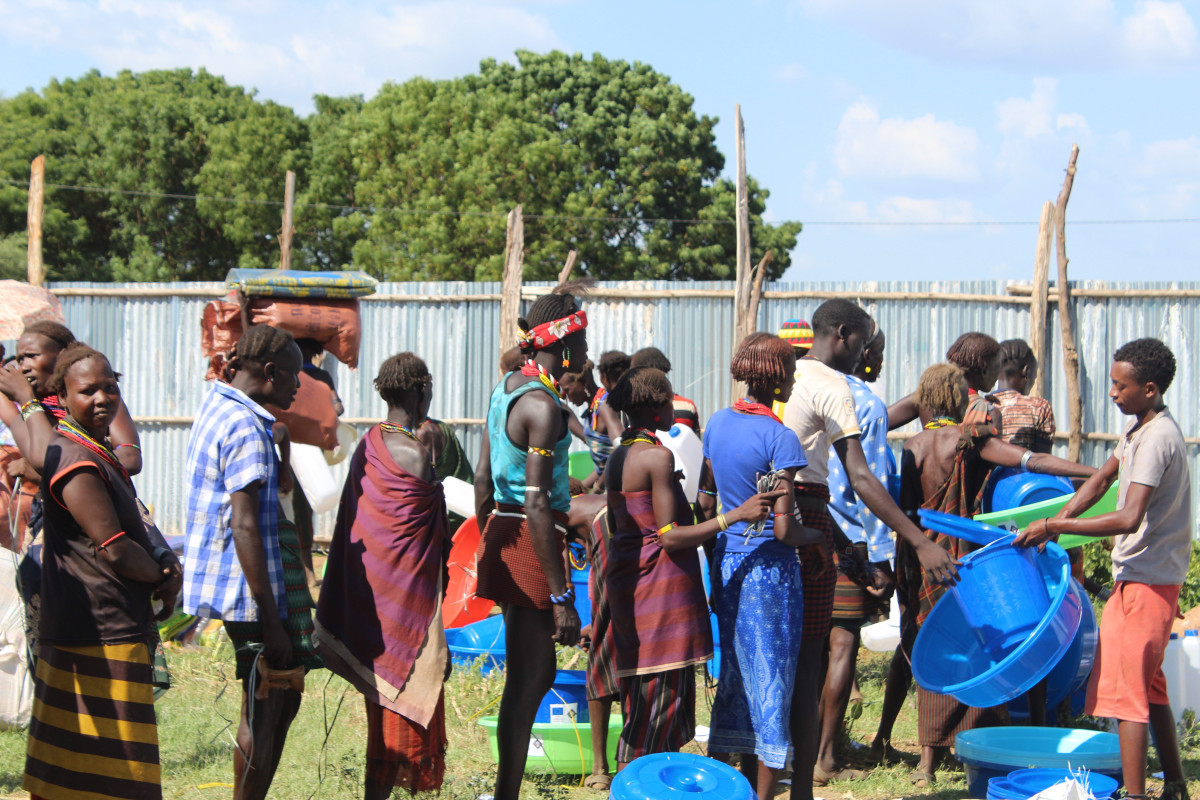
Multisectoral life-saving response to the acute needs of the most vulnerable IDPs and returnees in Guji and West Guji zones, Oromia, Ethiopia
Political instability and ethnic armed conflicts in neighboring areas over the past few years have displaced some 100,000 people seeking safety in the woredas of the Guji Zone. People fleeing violence often have to travel hundreds of kilometers leaving their agricultural land and possessions behind. Refugees in host communities often make up the same proportion as host community, putting more pressure on land. With a growing population, access to drinking water is becoming insufficient. People have to walk several kilometers for water from rivers and ponds which is not
properly cleaned. Thus, diseases related to poor hygiene are spreading in the area. Extensive droughts can threaten even these last sources of water within a few months. Refugees come without any possessions, they live in shelters in places that do not provide them with basic protection or minimal hygienic conditions.
People in Need is improving the living conditions of the internally displaced population by accessing drinking water and providing a safe shelter. Thanks to the project, the wells, latrines, and hand washes will be reconstructed, a water storage system will be introduced and staff will be trained for its administration and maintenance. Households will be equipped with basic hygiene kits and trained in their use while receiving equipment for simple shelters. Health volunteers will be in regular contact with households, so the key health and hygiene information will reach a wide range of community members. The project also includes an information campaign on the prevention, symptoms, and treatment of the Covid-19 viral disease.

Prevention and mitigation of COVID-19 spread among the most vulnerable population in Gedeo
People in Need focuses primarily on improving access to health care, the quality of care, the hygiene standards, and awareness of good hygiene practices within communities. Medical centers will be equipped with hand-washing facilities and water infrastructure. Healthcare professionals will receive training in the prevention, identification, and treatment of Covid-19. Health volunteers who regularly visit communities will be trained in proper hygiene, prevention, identification, and treatment of Covid-19 so that key information reaches as many people as possible. The distribution of hygiene kits to households will be linked to an awareness campaign focused on good hygiene practices. Awareness will be further shared through leaflets and posters in public places.

Assistance to internally displaced people in Gedeo

Assistance to drought-affected areas
In mid-2017, People in Need in Ethiopia went on to fight the drought to South Omo. Water boreholes are being repaired, water is imported to the most needy areas in tanks, where there are no roads, on donkeys. PIN's Partner, Veterinarians Without Borders, is dedicated to destitute cattle for the most affected households.
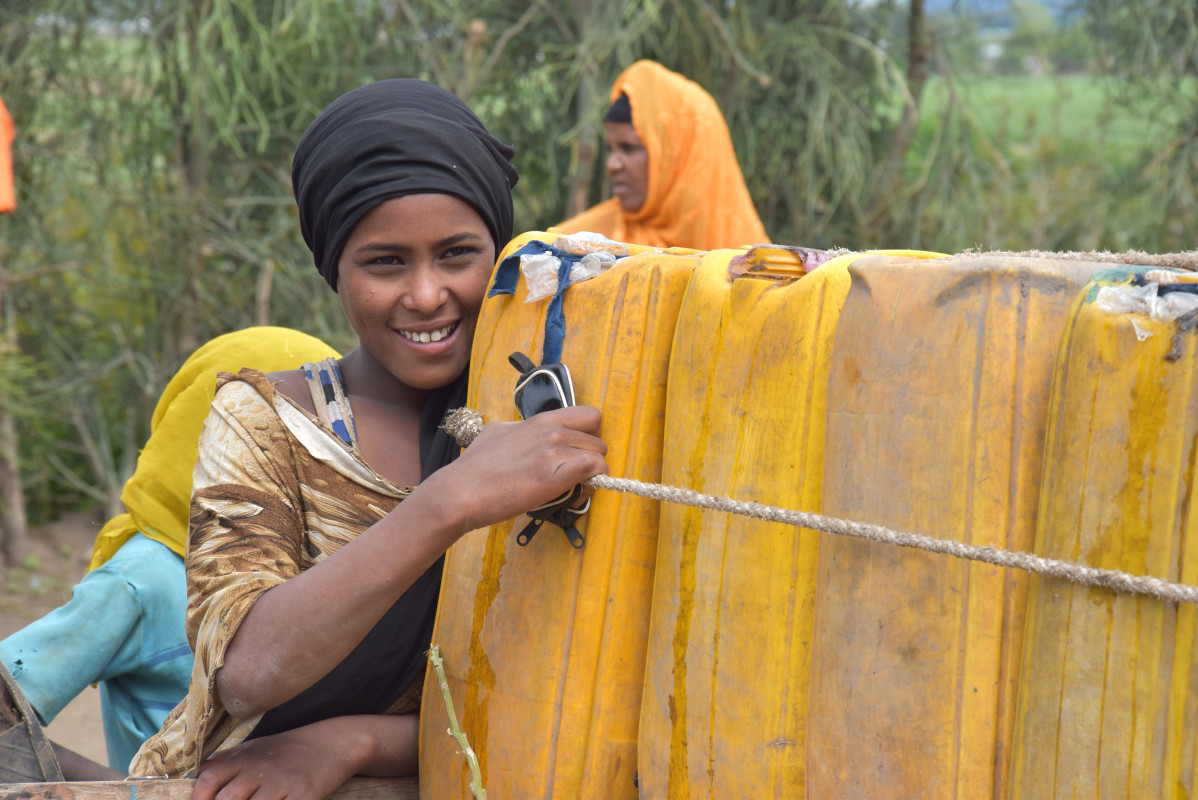
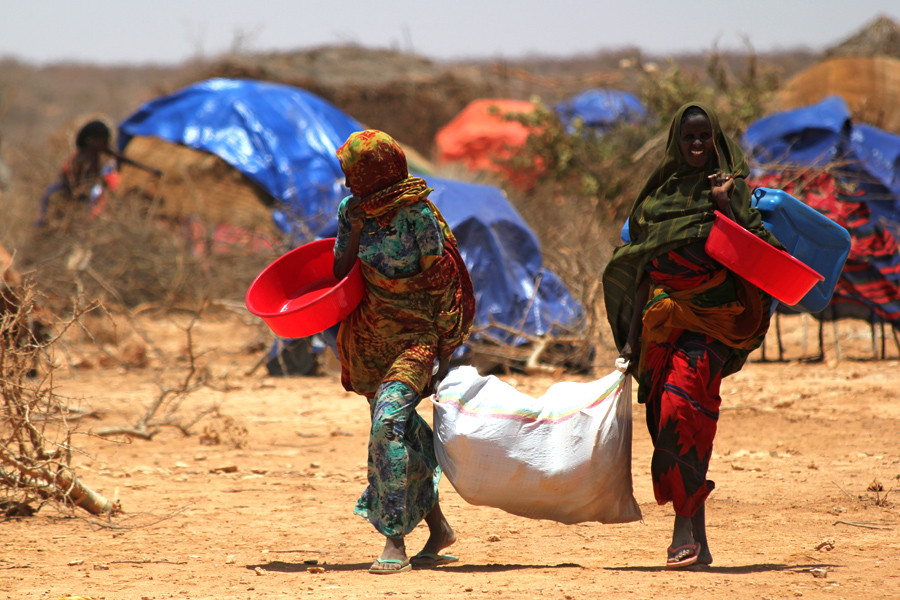
Support of Somali refugees
Through PIN projects there was realized the installation of dozens of new latrines, volunteers’ training took place and hygienic conditions rapidly improved. Furthermore, PIN provided material and tools for the construction of shelters, which were later equipped with utensils and hygiene kits containing soaps or water purification tablets. Thanks to the two mobile ambulances our operatives managed to provide basic health care. In addition, the old shelter building was converted into the school, which serves now as both, a study room and a dining facility.
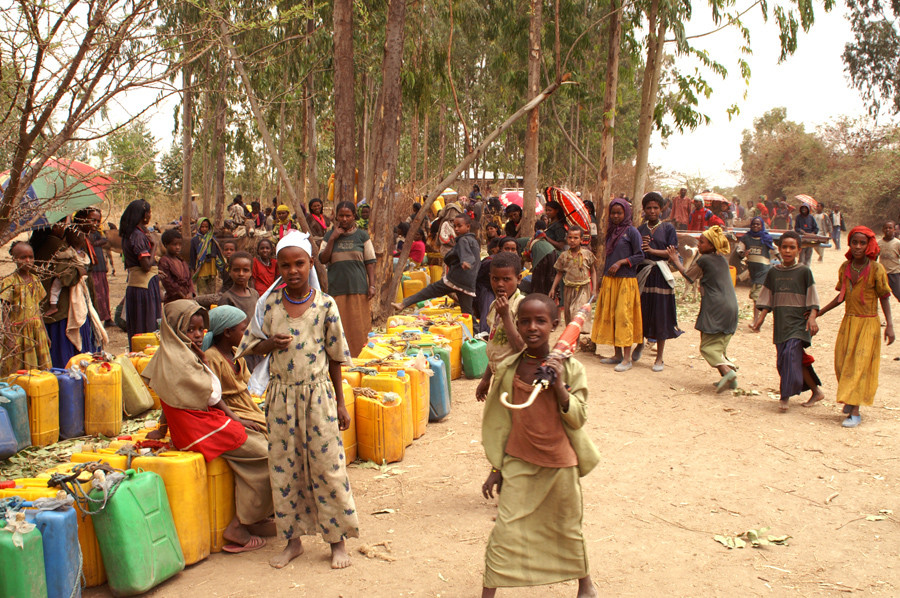
Immediate assistance to victims of natural disasters
In the next phase, PIN focused on repair of water well, building of two health centres and construction of water distribution systems. In addition to the nine existing wells being repaired, seven water distribution systems, thirty two roof rainwater collectors and fifteen latrines around schools and health centres were constructed. PIN’s development assistance project also included an extensive educational campaign, part of which was a demonstration of hygiene habits and distribution of canisters of water and soap. Overall this project benefitted circa 118 000 inhabitants of the Alaba district.
Poorly accessible areas of the Southern Oma in the Region of Southern Nations were in 2010 badly affected by floods, which lead to the expansion of waterborne diseases, including cholera. Given the fact, that even under the normal circumstances in the (Oma) region only 40% of the population has access to basic care, PIN immediately, after securing funding, went to distribute water purification tablets, water filters and hygiene kits. Following this emergency phase of assistance, nine wells were repaired and cleaned and nine roof rainwater collectors were built. The project was also an educational campaign for better hygiene habits and active public health training and helped more than 36 000 people.





